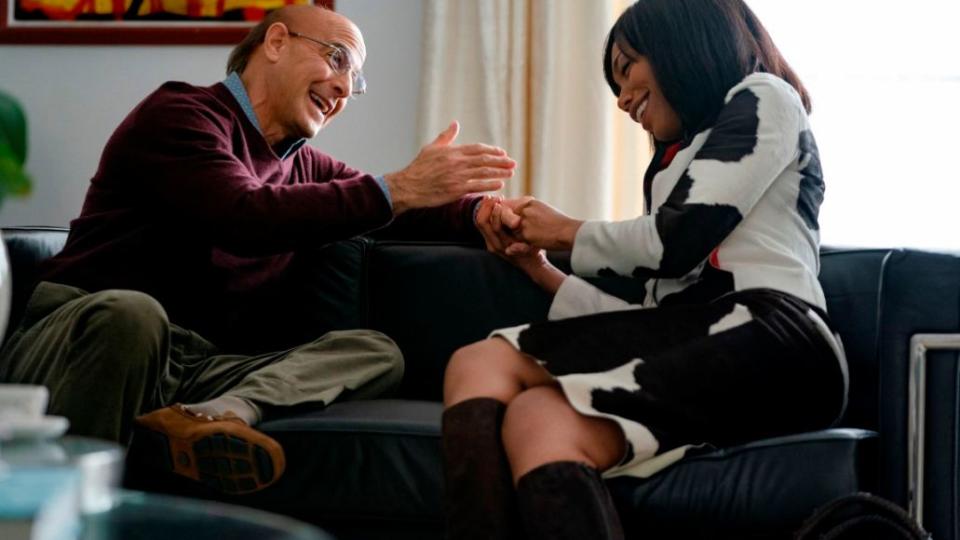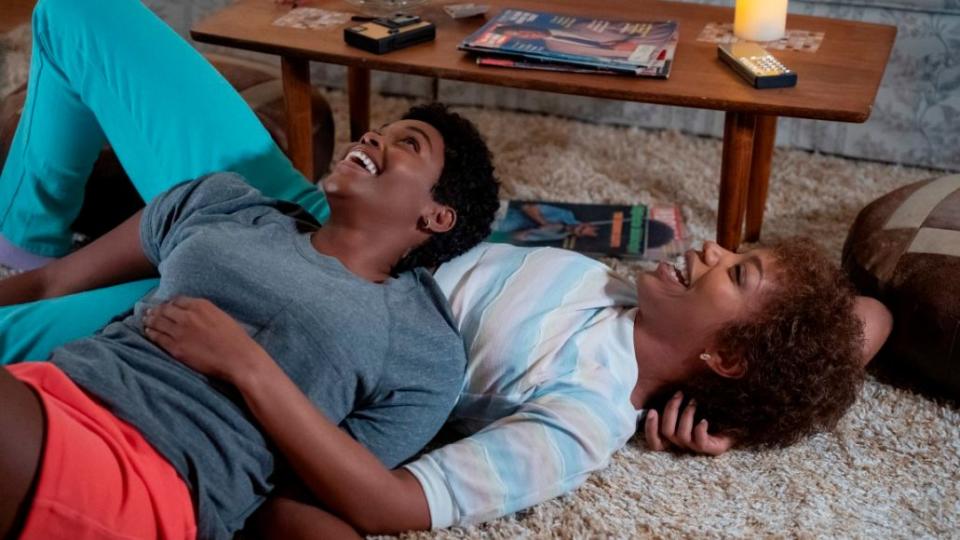Whitney Houston Comes to Life (At Least On Stage) In I Wanna Dance With Somebody: Review
- Oops!Something went wrong.Please try again later.
The post Whitney Houston Comes to Life (At Least On Stage) In I Wanna Dance With Somebody: Review appeared first on Consequence.
The Pitch: In 2012, America lost its Voice — Whitney Houston, the once-in-a-generation pop music icon, tragically died at the too-young age of 48. She was on the verge of a comeback after a stint in rehab, haunted by the twin specters of drugs and expectation; that we never got to see that beautiful second act makes her passing all the more tragic.
In the meantime, we’ve got the songs and story Whitney left behind, and Kasi Lemmons’ I Wanna Dance with Somebody (or, as Sony’s SEO-focused title change goes, Whitney Houston: I Wanna Dance with Somebody) tries to stuff that into a two-and-a-half-hour speedrun of her life and career, featuring Naomi Ackie as the tragic figure.
We see her early days as a gospel singer, groomed for greatness by her ambitious mother Cissy (a perfectly-balanced Tamara Tunie) and domineering father (Clarke Peters). Before long, she’s caught the attention of record producer Clive Davis (Stanley Tucci) and her career is off to the races, banging out hit after hit and achieving crossover fame as one of the first Black female performers to resonate with white audiences.
But becoming “America’s Princess” is hardly a picnic, as she must shape her sound and persona to facilitate her meteoric success. Her early romance with Robyn Crawford (Nafessa Williams) tragically gives way to playing straight for the public, guiding her right into Bobby Brown’s arms (Ashton Sanders). And down the rabbit hole we go, barreling indefatigably toward that fateful day in 2012.
The Greatest Love of All: As compared to other adaptations of Whitney’s life, I Wanna Dance with Somebody comes with the blessing of Houston’s family members, specifically her brother and sister-in-law. And to its credit, it succeeds most mightily when giving the people what they want: Whitney Houston, on a stage, singing her heart out. Ackie, an English actress who makes up for a lack of physical resemblance with a surfeit of the singer’s stage presence, does yeoman’s work with the dramatic material she’s given (more on that later).
It’s in front of the mic that we see the depths of Ackie’s dynamism — she may not have Whitney’s pipes (who does?) but she can lip-sync with the best of them, capturing all of Whitney’s dramatic gestures and vocal runs with pinpoint precision. It’s replication, but it’s also interpretation, incorporating what we recognize as Whitney into her own conflicted take on the character. As frenetic as her life may be, it all melts away when she’s singing, and these extended sequences prove sweet relief.

Whitney Houston: I Wanna Dance With Somebody (Sony)
Lemmon’s direction comes alive in these moments as well. While Barry Ackroyd’s cinematography sometimes skews Movie of the Week, the camera swirls and holds on Whitney and the period details around her (the sets, the costumes) for moments of welcome spectacle. Apart from some handheld flourishes in more dramatic confrontations, and a few major crises being hashed out in shots of fragmented reflections, that same electricity doesn’t extend to the rest of the movie’s look.
Poison Pen: Anthony McCarten’s script (the trailers boast “from the writer of Bohemian Rhapsody” in what feels like a warning) stumbles when it tries to balance the joy of her singular talent with the foibles of her personal life. The music biopic genre is littered with tales of meteoric rises and falls, fueled by ego, selfish parents, abusive partners, and substance abuse; McCarten, who’s written arguably the tritest of these in recent years, can’t shake the familiarity of the formula. In the opening minutes, we see Whitney gearing up for her now-famous medley at the 1994 American Music Awards; you can practically hear someone mutter, “Whitney Houston has to think about her entire life before she sings.”
There are a few welcome wrinkles and prods at our public understanding of Whitney: the film makes her romance with Robyn explicit, and the ways her father and the industry forced her to push it to the sidelines in favor of a more accessible image. Those scenes between Ackie and Williams shudder with frisson, their glee at being around each other colored with the understanding it can never go as far as they’d truly like.

Whitney Houston: I Wanna Dance With Somebody (Sony)
It also zags where most music biopics would zig: Tucci’s sleazy-seeming manager proves a powerful advocate for her diverse musical tastes, especially as they rifle through songs to add to Whitney’s catalog. Tunie even balances Cissy’s desire for success by proxy with a deep care for her daughter’s talent, while engineering the chances she was denied.
But it’s in the second half, when life and the public begin to complicate Whitney’s success, that Lemmons and McCarten feel the need to rush through the unpleasant stuff. Accusations of her sound being “not Black enough” arise and fall over the course of a radio interview and some boos at the 1988 Soul Train Music Awards; her tumultuous relationship with Bobby Brown struggles for oxygen (and arguably lets him off pretty easy by the end). The drug use that would eventually contribute to her untimely end is brushed past with a few shots of childhood bongs and cocaine smuggled in ballpoint pens. We barely even see her movie career, relegated to a shoddily-staged scene on the set of The Bodyguard when she discovers she’s miscarrying. It all whirls past us with barely any time to register.
The Verdict: Houston’s magic as a performer was in her unpredictability; her voluminous range, the trailing vocal journey her famous runs took us on from note to note, measure to measure. When she (and Ackie) come alive on stage, Lemmons’ biopic soars with vibrating energy. It’s all the moments in between that grow ever more frustrating — the thin characterization, the flattening of her story into Behind the Music story beats, rushing from milestone to milestone without taking a breath.
It works as a showcase for Ackie’s incredible talent, especially when she gets to lip-sync for her life. But the movie doesn’t seem to be as interested in her depth, only in her vocal range. And it’s that lack of sophistication that fails to elevate I Wanna Dance with Somebody into something worthy of the late, great icon.
Where’s It Playing? Whitney Houston: I Wanna Dance with Somebody is currently playing in theaters.
Trailer:
Whitney Houston Comes to Life (At Least On Stage) In I Wanna Dance With Somebody: Review
Clint Worthington
Popular Posts
10-Year-Old Girl Fronts Crushing Cover of Slipknot's "The Heretic Anthem": Watch
Pink Floyd Release 18 Live Albums from The Dark Side of the Moon Era: Stream
Skateboarding Fleetwood Mac TikTok Star Arrested for Marijuana Possession
Billie Eilish Brings Out Dave Grohl and Phoebe Bridgers During Penultimate Concert of 2022: Watch

